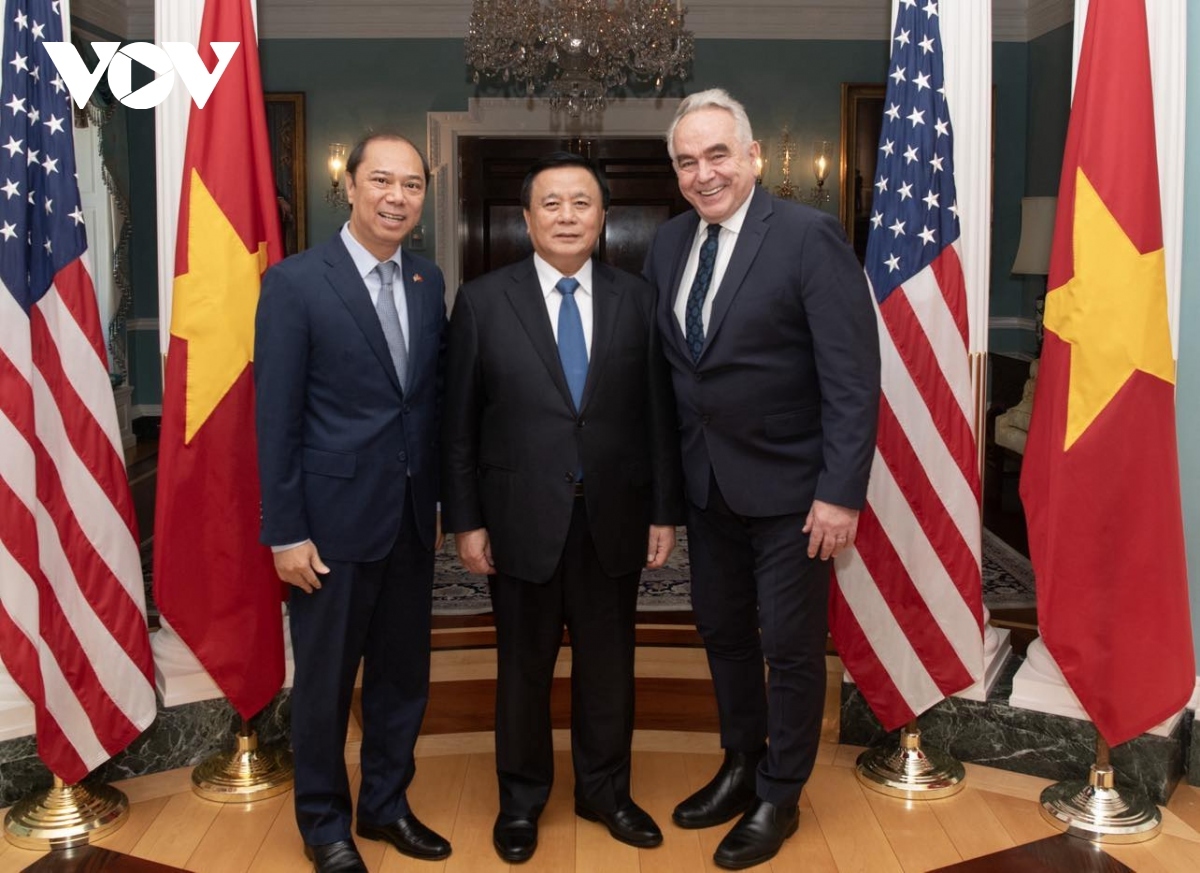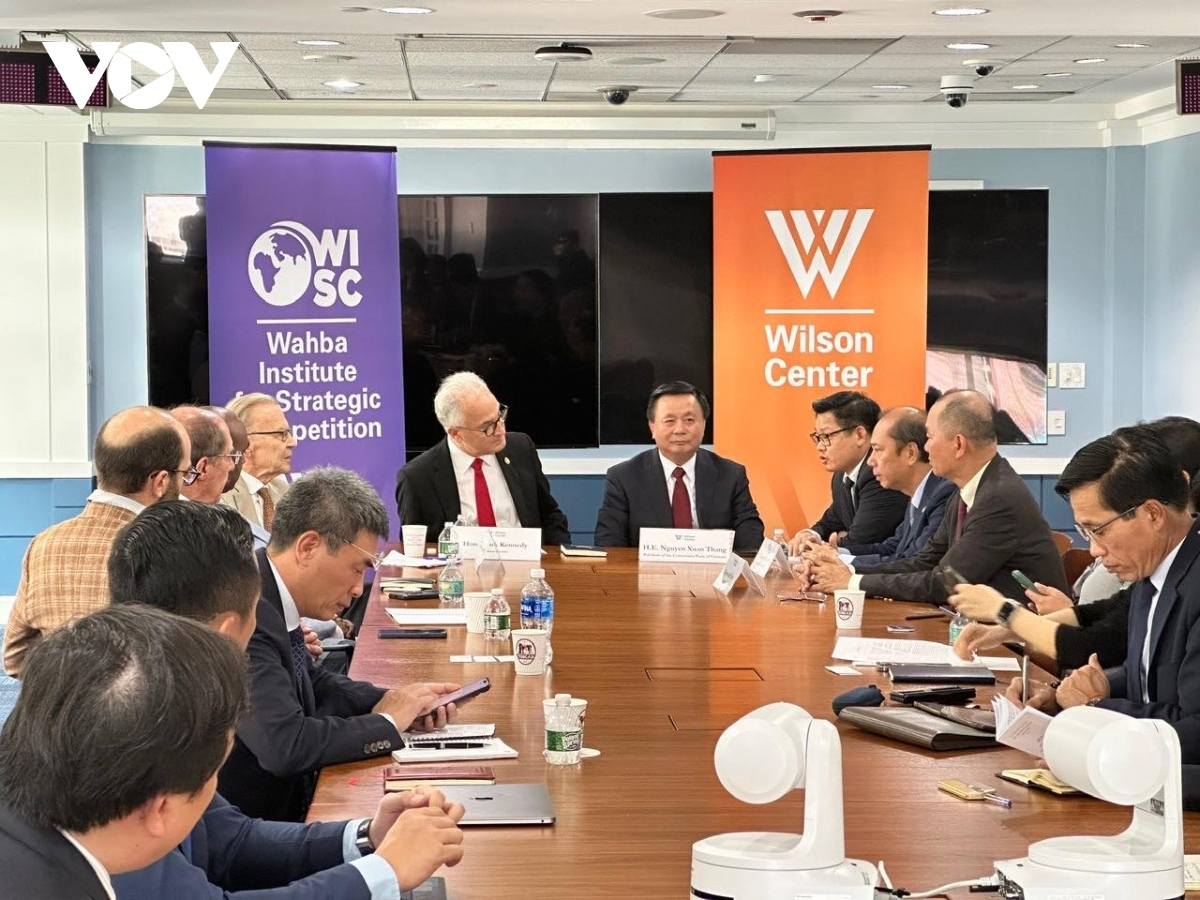Vietnamese Politburo member visits the United States
VOV.VN - Vietnamese Politburo member Nguyen Xuan Thang, who is also director of the Ho Chi Minh National Academy of Politics and chairman of the Central Theoretical Council, is paying a working visit to the United States from July 31 to August 4.

During his stay in Washington DC, Thang had meetings and discussions with a number of US officials, including the first Deputy Secretary of State, the US Special Envoy for Climate, the Deputy National Security Advisor for Cyber and Emerging Technology, and the Deputy Assistant Secretary of the Treasury for Asia and the Pacific.
He also had working sessions with researchers and scholars at the Centre for Strategic and International Studies (CSIS), the Heritage Foundation, the Institute of Peace, and the Wilson Center, as well as the leaders of the Communist Party of the United States of America.
During the meetings, Thang noted with satisfaction the comprehensive and rapid development of the comprehensive strategic partnership between the two countries in recent times.

He also expressed his regret and dissatisfaction about the US Department of Commerce’s recent decision not to recognize Vietnam as a market economy, saying bilateral trade and investment relations have developed unprecedentedly in recent times, and the two countries have also made great efforts to elevate their relationship to the comprehensive strategic partnership.
More importantly, he said Vietnam has met all six criteria set by the US Department of Commerce when considering recognizing a country as a market economy.
Thang requested that the US should make an objective evaluation and soon recognize Vietnam’s market economy status. He expected that US firms would continue to promote investment in Vietnam and export their advantageous products to the Vietnamese market in an attempt to reduce the US trade deficit with the Southeast Asian economy.
The officials of the US Department of State shared Vietnam’s concerns about the US Department of Commerce’s decision, and affirmed that the move would not impact economic relations between the two countries, which are currently developing positively.


